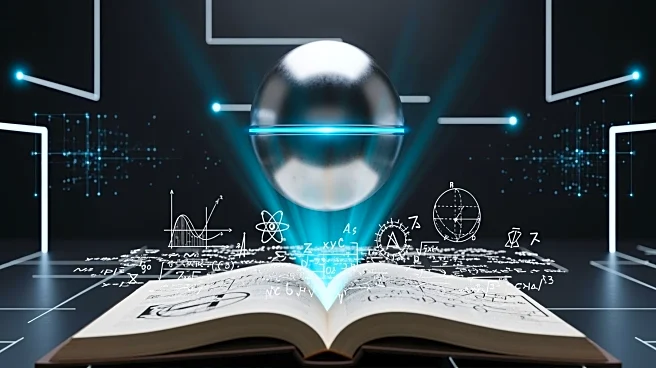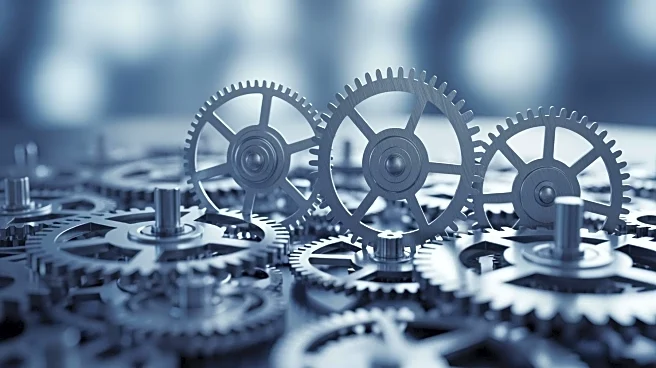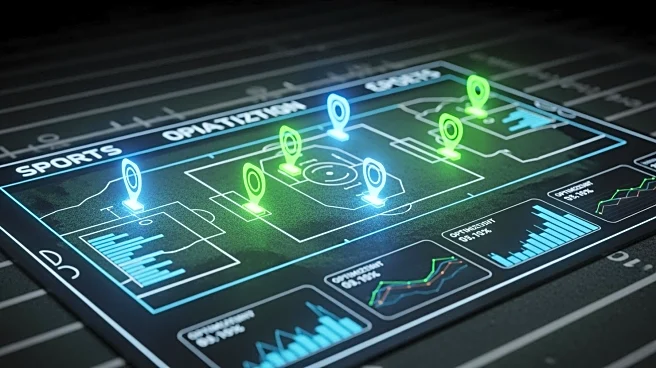What's Happening?
A team of researchers in China has developed an artificial intelligence system named AI-Newton, which can autonomously discover fundamental physics principles. The system was designed to mimic the human scientific process by incrementally building a knowledge
base of concepts and laws. AI-Newton was tested using data from 46 physics experiments involving pendulum-like motion, free motion of balls and springs, and collisions between objects. The AI was able to derive key physics principles, such as Newton's second law, by using an approach called symbolic regression. This method allows the AI to find the best mathematical equation to represent physical phenomena, potentially leading to scientific insights without human intervention.
Why It's Important?
The development of AI-Newton represents a significant advancement in the field of artificial intelligence and its application in scientific discovery. By autonomously deriving scientific principles, AI-Newton could revolutionize how research is conducted, potentially accelerating the pace of discovery in physics and other scientific fields. This capability could reduce the need for human intervention in the initial stages of scientific research, allowing scientists to focus on interpreting and applying new findings. The success of AI-Newton could also inspire further development of AI systems capable of contributing to other areas of science, technology, and industry.
What's Next?
The AI-Newton model's ability to autonomously discover scientific principles may lead to its application in more complex scientific research areas. Researchers may explore its potential in other fields, such as chemistry or biology, to see if similar breakthroughs can be achieved. Additionally, the AI's success could prompt further investment in AI research and development, particularly in creating models that can independently contribute to scientific and technological advancements. The broader scientific community may also begin to consider the ethical and practical implications of AI-driven research.
Beyond the Headlines
The development of AI-Newton raises important questions about the role of AI in scientific research and the potential for machines to independently contribute to human knowledge. As AI systems become more capable of autonomous discovery, there may be a shift in how scientific research is conducted, with machines taking on more of the initial data analysis and hypothesis generation. This could lead to a reevaluation of the traditional scientific process and the role of human researchers in the age of AI.















